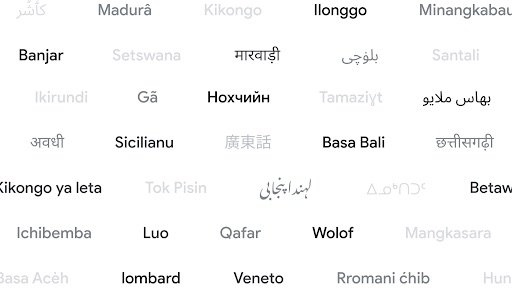Google said today that it is adding support for 110 languages to its translation service. The company has used its PaLM 2 AI model to power translations.
These languages include Afar, Cantonese, Manx, Nko, Punjabi (Shahmukhi), Tamazight (Amazigh) and Tok Pisin. The company said the newly added languages represent over 614 million speakers or roughly 8% of the world’s population.
Google noted that these languages are in different stages of usage. While some of them have 100 million speakers, some of them don’t have any active speakers — but people are working to preserve those languages.
Google said it considers elements like regional varieties, dialects, and different spelling standards while adding support for a language.
“Our approach has been to prioritize the most commonly used varieties of each language. For example, Romani is a language that has many dialects all throughout Europe. Our models produce text that is closest to Southern Vlax Romani, a commonly used variety online. But it also mixes in elements from others, like Northern Vlax and Balkan Romani,” Issac Caswell, a software engineer at Google, said in a statement.
The addition of 110 languages to Google Translate is part of its initiative to support 1,000 languages through AI, which was announced in 2022. In the same year, the company added support for 24 languages spoken by over 300 million people through its one-shot model. With the latest additions, Google Translate now supports 243 languages.
At WWDC, Apple announced that it is adding support for Hindi to its translation app. However, as compared to Google, Apple Translate supports just over 20 languages.
